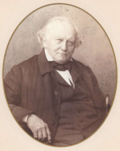Carl Gustav Jung (/jʊŋ/ YUUNG; German: [kaʁl ˈjʊŋ]; 26 July 1875 – 6 June 1961) was a Swiss psychiatrist, psychotherapist, psychologist and pioneering...
157 KB (19,370 words) - 12:17, 9 November 2024
This is a list of writings published by Carl Jung. Many of Jung's most important works have been collected, translated, and published in a 20-volume set...
12 KB (1,649 words) - 19:45, 31 August 2024
red leather binding. The work was crafted by the Swiss psychiatrist Carl Gustav Jung between 1914: 40 (ft.124) and about 1930. It follows, records and...
21 KB (2,663 words) - 19:04, 14 March 2024
Jungian archetypes (redirect from Archetypes (Carl Jung))
collective unconscious was first proposed by Carl Jung, a Swiss psychiatrist and psychoanalyst. According to Jung, archetypes are innate patterns of thought...
57 KB (7,181 words) - 23:58, 21 November 2024
Emma Jung (born Emma Marie Rauschenbach, 30 March 1882 – 27 November 1955) was a Swiss Jungian analyst and author. She married Carl Jung, financing and...
9 KB (967 words) - 01:53, 11 October 2024
Anima and animus (redirect from Anima (Jung))
well-tuned personality through something like a Goldilocks principle. Carl Jung described the animus as the unconscious masculine side of a woman, and...
19 KB (2,375 words) - 11:10, 10 November 2024
It is generally associated with idealism and was coined by Carl Jung. According to Jung, the human collective unconscious is populated by instincts,...
57 KB (7,899 words) - 08:09, 21 October 2024
Mary Foote (section Carl Jung)
– January 28, 1968) was an American painter and producer of notes of Carl Jung's seminars. As an artist, she lived and worked in New York's Washington...
15 KB (1,625 words) - 10:55, 6 November 2024
Hidden personality (section Carl Jung)
positive and negative life experiences (Quenk 2002). In his studies, Carl Jung divided the psyche into the unconscious and the conscious minds. Freud...
18 KB (2,525 words) - 03:41, 23 March 2023
Personality type (section Carl Jung)
One of the more influential ideas originated in the theoretical work of Carl Jung as published in the book Psychological Types. The original German language...
23 KB (2,778 words) - 15:20, 17 November 2024
tales and of alchemical manuscripts. She worked and collaborated with Carl Jung from 1933, when she met him until he died in 1961. Marie-Louise Ida Margareta...
30 KB (4,197 words) - 09:27, 18 November 2024
Analytical psychology (redirect from Jung's analytical psychology)
analytic psychology and referred to as Jungian analysis) is a term coined by Carl Jung, a Swiss psychiatrist, to describe research into his new "empirical science"...
103 KB (12,789 words) - 10:23, 21 October 2024
Synchronicity (redirect from Pauli–Jung conjecture)
psychiatrist Carl Jung to describe events that coincide in time and appear meaningfully related, yet lack a discoverable causal connection. Jung held this...
54 KB (6,166 words) - 00:38, 12 November 2024
Unus mundus (section Jung and Pauli)
idea was popularized in the 20th century by the Swiss psychoanalyst Carl Gustav Jung, though the term can be traced back to scholastics such as Duns Scotus...
4 KB (413 words) - 23:33, 20 August 2024
Individuation (section Carl Jung)
concept appears in numerous fields and is encountered in works of Leibniz, Carl Jung, Gunther Anders, Gilbert Simondon, Bernard Stiegler, Friedrich Nietzsche...
23 KB (2,648 words) - 07:09, 21 October 2024
Black Books are a collection of seven private journals recorded by Carl Gustav Jung principally between 1913 and 1932. They have been referred to as the...
9 KB (1,256 words) - 11:01, 28 September 2023
to professions that fit their name was suggested by the psychologist Carl Jung, citing as an example Sigmund Freud who studied pleasure and whose surname...
51 KB (6,015 words) - 07:45, 28 October 2024
"Spitteler, Carl" . In Rines, George Edwin (ed.). Encyclopedia Americana. Stark, T., “Crashing Out with Sylvian: David Bowie, Carl Jung and the Unconscious”...
7 KB (746 words) - 14:23, 19 November 2024
is a principle introduced in the West by psychiatrist Carl Jung. In Psychological Types, Jung defines enantiodromia as "the emergence of the unconscious...
6 KB (780 words) - 07:51, 29 October 2024
Wounded healer (section Jung's wound)
Wounded healer is a term created by psychologist Carl Jung. The idea states that an analyst is compelled to treat patients because the analyst himself...
10 KB (1,386 words) - 11:56, 1 July 2024
20th-century psychology, particularly through her collaboration with Carl Jung and her pioneering work in Jungian and feminist psychology. Her contributions...
11 KB (1,447 words) - 17:00, 15 October 2024
Karl Gustav Jung married three times and was the father of noted architect, Ernst Georg Jung, and the grandfather of Carl Gustav Jung, psychiatrist...
8 KB (832 words) - 13:41, 31 July 2024
Active imagination (section Carl Gustav Jung)
(conscious?) participation in a sacramental universe". As developed by Carl Jung between 1913 and 1916, active imagination is a meditation technique wherein...
16 KB (2,181 words) - 14:16, 22 September 2024
Father complex (section Freud and Jung)
of the male child, as an aspect of the Oedipus complex. By contrast, Carl Jung took the view that both males and females could have a father complex...
12 KB (1,589 words) - 19:02, 17 July 2024
Shadow (psychology) (redirect from Shadow (Jung))
Freud and Carl Jung coalesced at Platonism, wherein id rejects the nomos.[clarification needed] Persona is contrasted against the shadow. Jung regarded...
37 KB (4,449 words) - 19:17, 20 October 2024
of ideas), was coined by Carl Jung when he was still a close associate of Sigmund Freud. Complexes were so central to Jung's ideas that he originally...
21 KB (2,083 words) - 21:49, 23 October 2024
Sophia (Gnosticism) (section Carl Jung)
darkness and obliterate it: it will be like something that never was. Carl Jung linked the figure of Sophia to the highest archetype of the anima in depth...
55 KB (7,358 words) - 11:25, 25 October 2024












